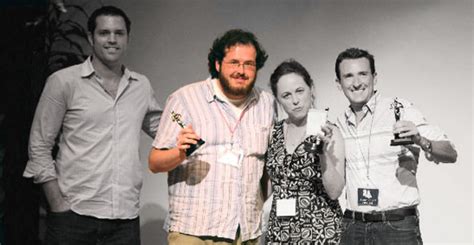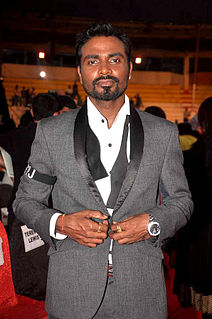A Quote by Barbara Kruger
The reason why bookstores are going out of business in the States is that people just can't focus on longer narratives now - even narrative film is in crisis in many ways, unless it's an adventure film.
Related Quotes
I think that's true of all cinema, that's why cinema is the great humanistic art form. Whatever the film is, it doesn't matter what the film is about, or even whether it's a narrative or figurative film at all, it's an invitation to step into somebody else's shoes. Even if it's the filmmaker's shoes filming a landscape, you go into somebody else's shoes and you look out of their lens, you look out of their eyes and their imagination. That's what going to the pictures is all about.
Whatever experimental film aromas cloaked my movies were because I'm a gleefully clumsy, primitive filmmaker. I really like traditional pleasingly narrative films, but I also just couldn't resist throwing in the disruptive. It seems to me that art-house film is at its glorious zenith right now, maybe it can even get better? There's just so many good films, you know Cemetery Of Splendour, Arabian Nights, Miguel Gomes, just so much great work coming out.
When I did Mira Nair's film on AIDS, people told me to stay away from it and even asked me reasons why I chose to do a film on the stigma. My reason for choosing the movie is similar. It is a social reality and there is no harm being a part of a movie like this as it really dissects the reality of the crisis.
The business side of film has goofed up so many things, but even that's changing. It happened to the music industry and now it's happening to the film studios. It's crazy what's going on. But artists should have control of their work; especially if, as I always say, you never turn down a good idea and never take a bad idea.
There are so few roles out there. And even if it is a film that could be led by a black actress, how many times is that film going to get funded? Let's just be real. But it's not just black people. It's Asians, it's Hispanic people if you're not Salma Hayek. It's hard. It's hard to get films funded.
I went back to Dallas for a little while to finish my short film 'Rusty Forkblade.' It was not the instant success I thought it was going to be. There's a false narrative that if you make a short film right after senior year, you'll be plucked out to make a feature length film, and the rest is history. I didn't do that.
The Limits Of Control is not surrealism, but it is an experiment in which expectations are deliberately removed: expectations for narrative form, for action in a film, for certain emotional content. We wanted to remove those things and see if we could still make a film that was a beautiful film experience, with deliberately removing things many people would expect.








































